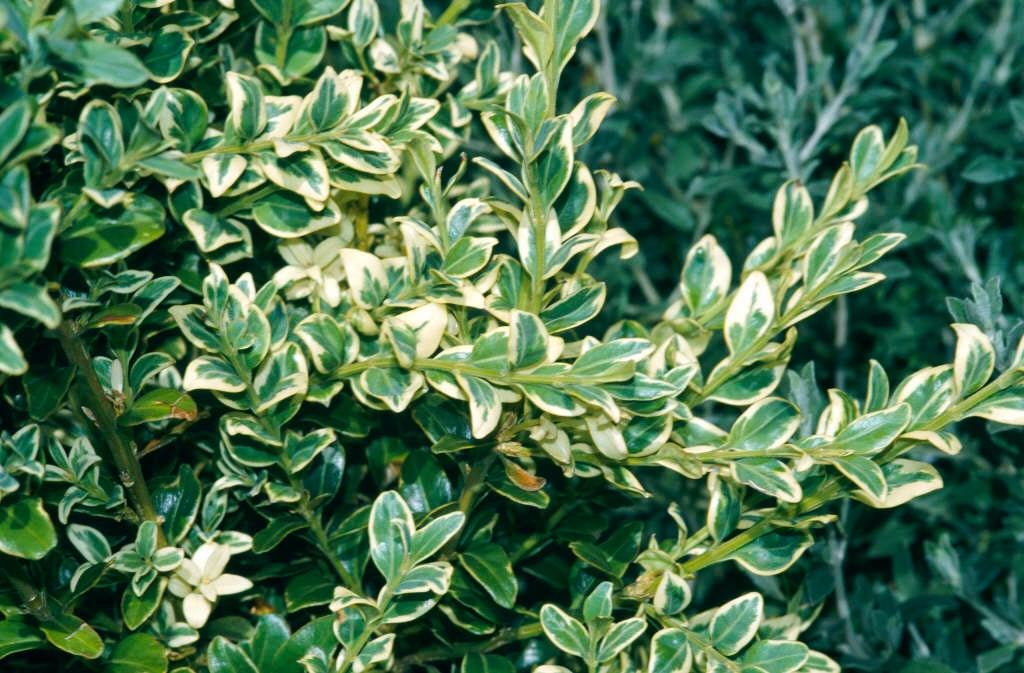Buxus sempervirens 'Elegantissima' (v)

box 'Elegantissima'
A dense, evergreen shrub to 1.5m tall with narrow, white-margined, dark green leaves to 2cm long and small yellowish flowers in clusters during spring

Buy this plant
Size
Ultimate height
1–1.5 metresTime to ultimate height
5–10 yearsUltimate spread
1–1.5 metresGrowing conditions
Moisture
Moist but well–drained, Well–drainedpH
Acid, Alkaline, NeutralColour & scent
| Stem | Flower | Foliage | Fruit | |
| Spring | Yellow | Cream Green Variegated | ||
|---|---|---|---|---|
| Summer | Cream Green Variegated | Green | ||
| Autumn | Cream Green Variegated | |||
| Winter | Cream Green Variegated |
Position
- Full shade
- Partial shade
Aspect
East–facing or West–facing or North–facing or South–facing
Exposure
Exposed or Sheltered Hardiness
H6Botanical details
- Family
- Buxaceae
- Native to GB / Ireland
- No
- Foliage
- Evergreen
- Habit
- Bushy
- Potentially harmful
- Pets (dogs): Harmful if eaten For further information and contact numbers regarding pets, see the HTA guide to potentially harmful plants
- Genus
Buxus can be evergreen shrubs or small trees, with simple, leathery, opposite leaves and clusters of small, pale yellow flowers followed by pale green to brown fruits
- Name status
Accepted
How to grow
Cultivation
Grows best in well-drained soil in partial shade; can be scorched by sun and strong winds in dry soils. Susceptible to a number of box problems, see box cultivation
Propagation
Propagate from semi-ripe cuttings in summer
Suggested planting locations and garden types
- City and courtyard gardens
- Cottage and informal garden
- Patio and container plants
- Wildlife gardens
- Flower borders and beds
- Garden edging
- Hedging and screens
Pruning
Pruning group 8 in summer, renovation pruning can be carried out in late spring. Use mulch and a general fertiliser after hard pruning
Pests
May be ssceptible to box tree caterpillar, box sucker, mussel scale and red spider mite
Diseases
May be susceptible to a leaf spot, box blight and, rarely, honey fungus
Get involved
The Royal Horticultural Society is the UK’s leading gardening charity. We aim to enrich everyone’s life through plants, and make the UK a greener and more beautiful place.